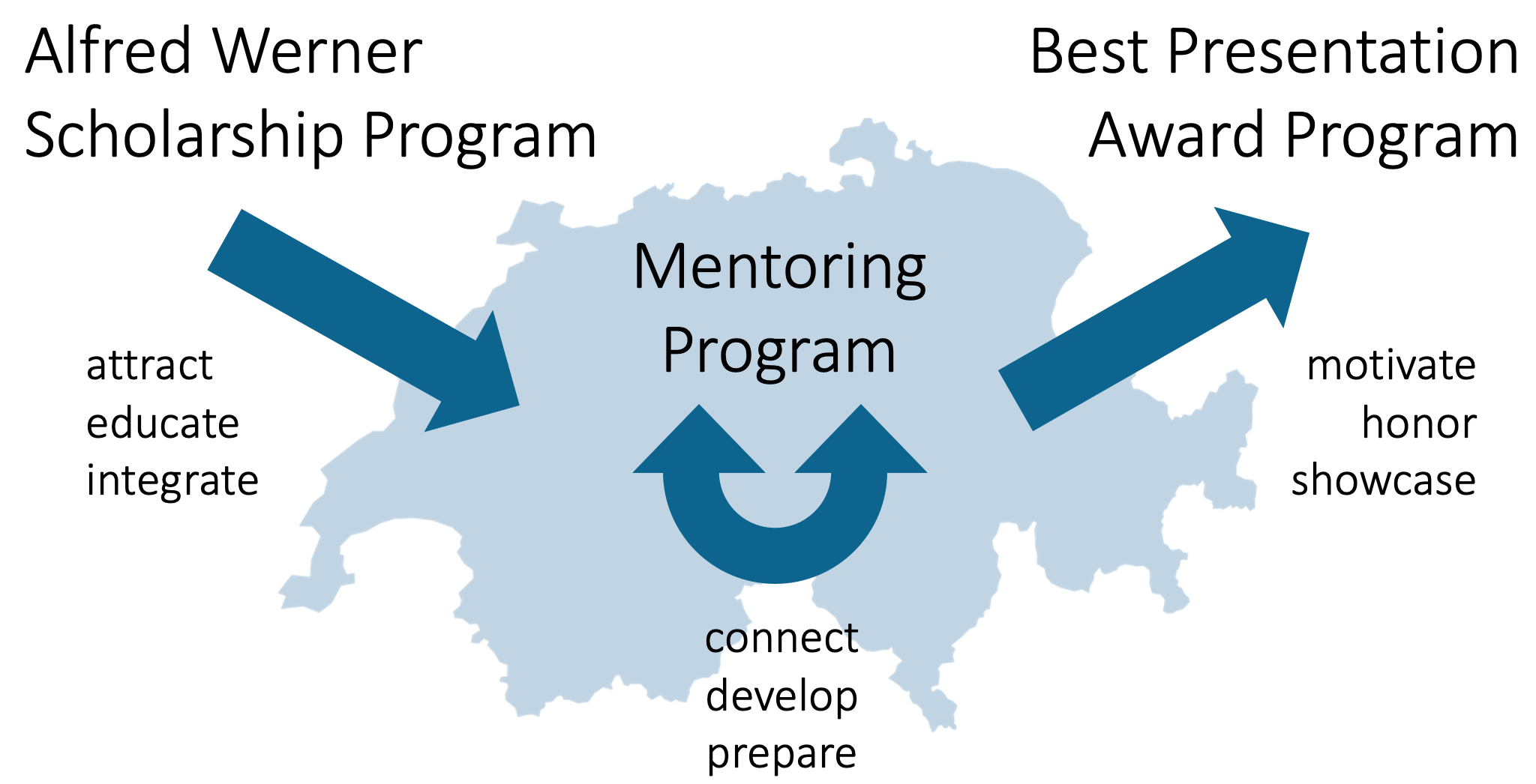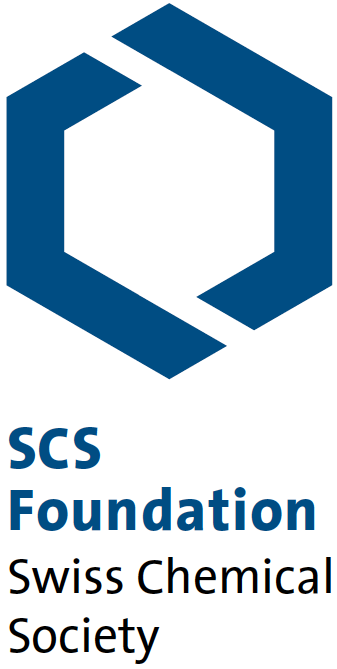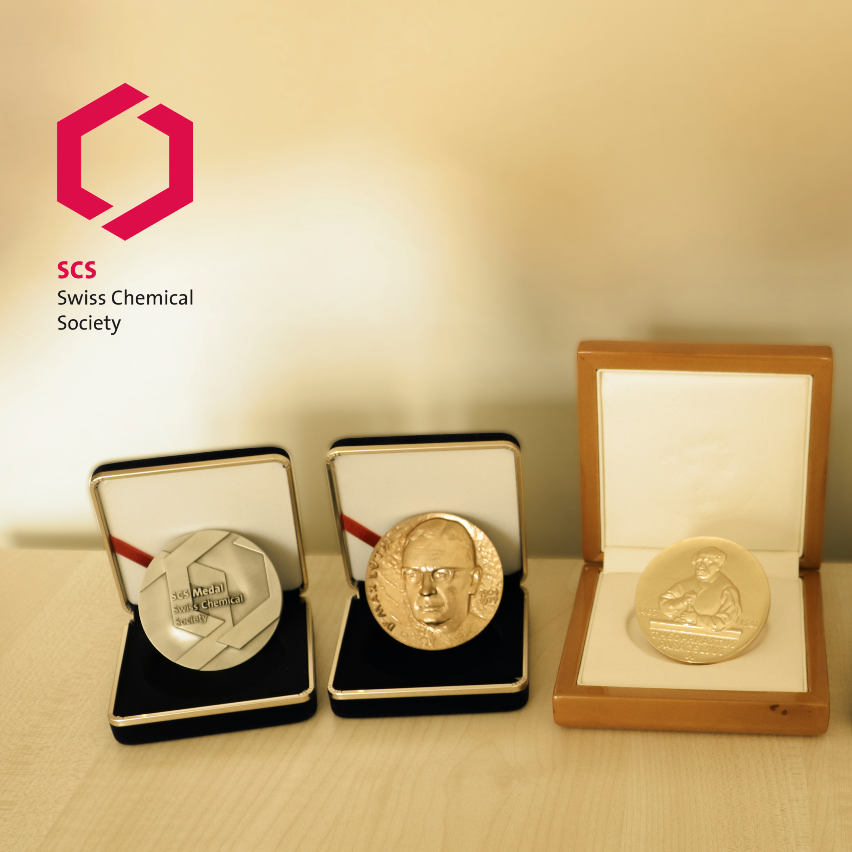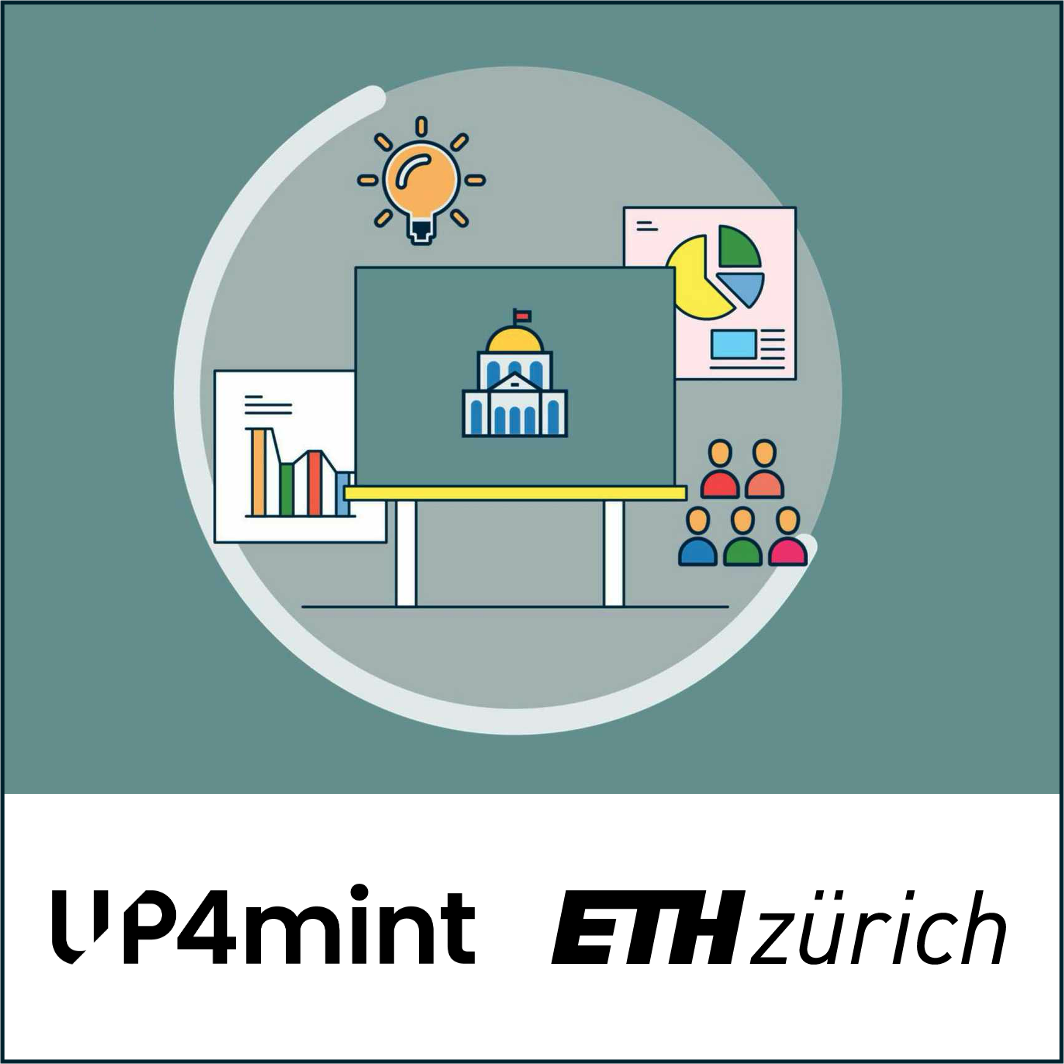
Open Position: Director of the SCS Foundation, 30%
 The SCS Foundation supports and promotes research and education in the fields of chemistry and biochemistry and runs three programs to achieve these goals:
The SCS Foundation supports and promotes research and education in the fields of chemistry and biochemistry and runs three programs to achieve these goals:
- Alfred Werner Excellence Scholarship Program for master students from abroad
- Mentoring program in collaboration with the youngSCS
- Best Presentation Award Program at the SCS Fall Meeting

As of October 1, or according to agreement, we are looking for a successor to the current
Director of the Foundation, 30%
Tasks
- Managing the business and supervising the programs in accordance with the guidelines of the foundation board
- Organizing meetings of the foundation board
- Cooperation with the allocation and steering committees of the foundation programs
- Negotiating and renewing contracts with the supporters
- Attracting new donors from industry, the foundation sector and private individuals (in collaboration with the foundation board)
- Preparation of the annual report and accounts for the foundation board and the FDHA Foundation Supervisory Authority
Candidate’s Profile
- Good networking within the Swiss academic and industrial chemistry and life sciences community
- Motivation to actively support the younger generation of chemists
- Experienced fundraising skills, especially from industry
- Business communication skills in German and English
Application
Applications should include a letter of application, a curriculum vitae, and a certificate of the highest degree as well as additional documents that underlines the candidate’s skills.
The dossier should be addressed to the President of the SCS Foundation, Prof. Christian Bochet ()
SCS Foundation
c/o Swiss Chemical Society
Haus der Akademien
Laupenstrasse 7
3008 Bern
www.scs-foundation.ch
David Spichiger, SCS
23.07.2025
SCS Scientific Award Program 2026: Call for Nominations
 The call for nominations for the SCS Awards 2026 is open until September 30, 2025.
The call for nominations for the SCS Awards 2026 is open until September 30, 2025.
Please visit our Website for further details and hand in nominations electronically to
Paracelsus Prize
CHF 20 000 and medal in gold awarded to an internationally outstanding scientist for his/her lifetime achievements in chemical research.
Werner Prize
CHF 10'000 and medal in bronze. Awarded to a promising young scientist for outstanding independent chemical research.
Sandmeyer Award
CHF 10'000 for individuals or CHF 20'000 for groups. Awarded to a person or to a group for outstanding work in industrial or applied chemistry.
SCS Industrial Science Awards
This program includes awards on three career levels with cash checks of CHF 7'000, 10'000 and 15’000. It honors active industrial scientists working in Switzerland for their outstanding contributions in industrial R&D.
Green & Sustainable Chemistry Award
CHF 10’000. Honors outstanding scientific discoveries that lay the foundation for environmentally friendly approaches and products. It is supported by Syngenta as founding partner and SusChem Switzerland as hosting institution.
Balmer Prize
CHF 2'000 for individuals and CHF 2'000 for the school’s chemistry department or CHF 3'000 for a group and CHF 1'000 for the school’s chemistry department. Awarded to a teacher working in Switzerland at high school (gymnasium) level for innovation in chemistry teaching.
Dr. Max Lüthi Award
CHF 1'000 and medal in bronze. Presented for an outstanding diploma thesis in Chemistry conducted at a Swiss University of Applied Sciences.
METAS Award
CHF 5’000. Honors outstanding contribution to the field of metrology in chemistry and/or biology.
DIAC Fellowship
CHF 1'000 and lecture tour in Switzerland. The distinction is granted to distinguished scientists from Industry for significant contributions and innovations over many years in the field of industrial chemistry and chemical process technology in Switzerland.
Céline Wittwer, SCS
23.07.2025
EuChemS Magazine: July 2025
Policy, research and community perspectives on chemistry in Europe and beyond
Explore our monthly compilation of science-related policy developments in Europe and the latest EuChemS news in this newsletter. Check out our headline stories or read the EuChemS Magazine Online
Editorial
Research
Policy Essay
Perspectives
- Honoring Rachel Mamlok-Naaman: ACS Award 2025 for Encouraging Women in Chemistry
- From Farewell to Forward: Shaping the Next Chapter of EYCN
Interview
Read the full magazine on: https://www.magazine.euchems.eu/
David Spichiger, SCS
18.07.2025

Your perspective counts: STEM (MINT) survey on shaping the future
 How is a future-relevant educational and economic sector perceived and understood today? How do these areas interact? Where is there room for optimization? This is exactly what gfs.bern and ETH Zurich want to find out with the STEM Mood Barometer.
How is a future-relevant educational and economic sector perceived and understood today? How do these areas interact? Where is there room for optimization? This is exactly what gfs.bern and ETH Zurich want to find out with the STEM Mood Barometer.
Your assessment as a decision-maker is particularly valuable to us, as it helps us to better understand current developments and recognize needs more clearly. You can make an important contribution with the 15 minutes you invest.
The survey is deliberately designed to be open - even if you have not dealt much with the topic of STEM so far, your opinion is still welcome.
Thank you for your participation and your support.
David Spichiger, SCS
04.07.2025
Page 1 of 299

